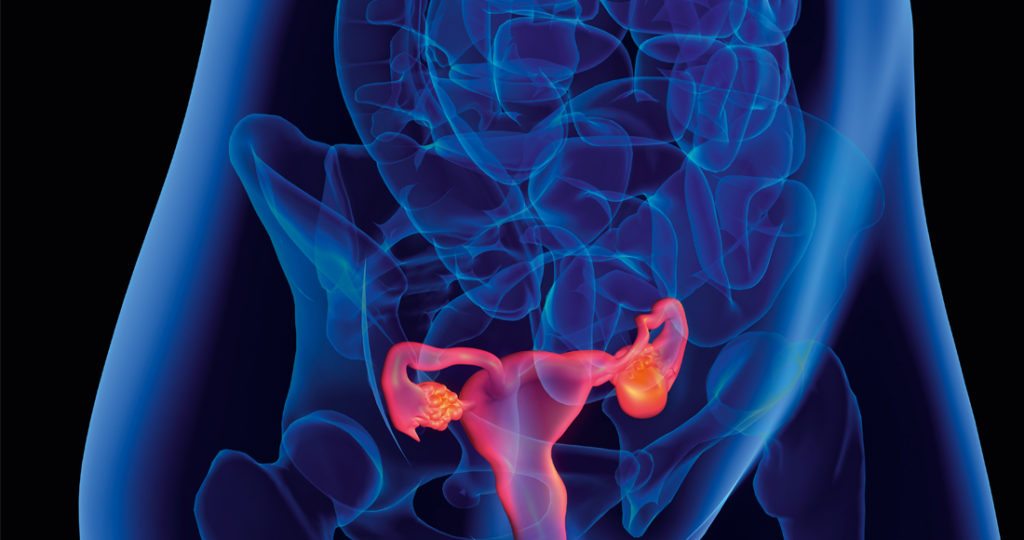PCOS 101

Polycystic ovary syndrome (PCOS) is a hormonal imbalance that affects about 5-7% of women (including adolescents) of childbearing age.
The symptoms might be present soon after menstruation begins, many women only seek medical help in their 20s or 30s, when they have difficulty in falling pregnant. Women with PCOS often don’t ovulate (release an egg) every month, so infertility is common.
HOW IS IT DIAGNOSED?
Professor Zephne van der Spuy of the Department of Obstetrics and Gynaecology at the University of Cape Town says that women present with varying complaints. ‘Most common are menstrual problems, about two-thirds seek treatment for unwanted hair growth, and others might first present to fertility services because of difficulty in falling pregnant.’
DIAGNOSIS IS MADE IF TWO OF THE FOLLOWING ARE PRESENT:
• Polycystic ovaries (diagnosed with an ultrasound scan of the ovaries)
• Anovulation (no eggs being released) or infrequent ovulation
• Hyperandrogenism (high levels of male sex hormones – detected by blood tests or clinical symptoms such as unwanted hair).
WHAT’S THE TREATMENT?
Prof van der Spuy says, ‘It’s important to protect the endometrium (lining of the uterus) because unopposed oestrogen can lead to endometrial abnormalities and even cancer. Oral contraceptives are used to regulate the hormonal imbalance. Hirsuitism (unwanted hair growth) also needs to be treated, as otherwise it can cause ongoing damage to the skin. Women wanting to fall pregnant will be referred to a fertility clinic.’
Various medications might be prescribed, depending on the symptoms. Treatment addresses the symptoms first, but it’s essential that women realise that PCOS requires long-term follow-up. Prof van der Spuy explains that PCOS is linked to lipid abnormalities (high cholesterol that can cause heart disease), hypertension (high blood pressure) and insulin resistance (that can lead to type 2 diabetes). Lifestyle management – exercise and healthy diet, for example – can help prevent or manage these conditions.
WHAT CAN THE PATIENT DO?
Prof van der Spuy says, ‘Keeping weight within the normal range helps. It improves insulin resistance, improves menstrual difficulties and reduces unwanted hair growth. Weight has a huge impact on fertility, because ovulation is often particularly affected in obese women. Many fertility units will not accept patients who are obese because their response to treatment is often poor, and weight loss will be the first line of therapy.’
PCOS tends to affect members of the same family. If your mother, sister or aunt has been diagnosed with PCOS your risk might be higher, so it would be a good idea to ask your doctor or clinic to assess you. The impact of early diagnosis has not been assessed, but it is hoped that the earlier the diagnosis is made and treatment is begun, the better the chances of preventing other related disorders.
NEED HEALTH ADVICE?
Jet Club members have free access to Jet Club’s helplines.
Personal Health Advisor contact numbers:
(SA & Namibia)
0800 00 45 45
From Botswana, Lesotho & Swaziland, dial
+2711 991 8258
Related articles

Latest Jet club magazine
We’ve got the latest trends, exciting prizes and exclusive savings just for you!
Jet Club will not pass your details to anyone else. By clicking the subscribe button you confirm you have read and agree to the Jet Club Terms and conditions and Jet Club Privacy Statement.
Subscribe

